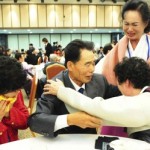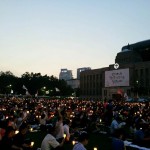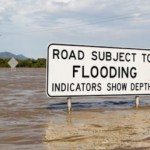- DETERRENCE: How to Deter Terrorism
- DPRK: Sustainable security in the Korean Peninsula: Envisioning a Northeast Asian Biodiversity corridor
- ENERGY SECURITY: Climate panel cites near certainty on warming
- GOVERNANCE AND CIVIL SOCIETY: Thousands rally in Seoul over relations with North Korea
- CLIMATE CHANGE ADAPTATION: Risk management and climate change: The role of the financial services sector
- AUSTRAL PEACE AND SECURITY: Pine Gap’s role in US drone strikes should be investigated – rights groups
DETERRENCE: How to Deter Terrorism, M. Kroenig, B. Pavel, Washington Quarterly, (Spring 2012), pp. 21-36
Many individuals and groups in terrorist networks have independent decision-making authority and an ability to harm states. Each is different, making it hard to design deterrence consistently. Also, not all terrorists can be deterred. Counter-terrorism needs not only deterrence, but offensive operations, defenses, and countervailing ideologies.
- The Resilience and Security of Spent Fuel in East Asia – Presentations at Regional Workshop, Nautilus Institute, Beijing, May 27, 2013.
- Anger Management in the Middle East, Nilsu Goren, Aviv Melamud, Ibrahim Said Ibrahim, and Ariane Tabatabai, August 8, 2013.
- Terrorism and Transnational Crime: Foreign Policy Issues for Congress, John Rollins, Liana Sun Wyler, Congressional Research Service, R41004, June 11, 2013.
 DPRK: Sustainable security in the Korean Peninsula: Envisioning a Northeast Asian Biodiversity corridor, Peter Hayes, The Korean Journal of International Studies (December 2013)
DPRK: Sustainable security in the Korean Peninsula: Envisioning a Northeast Asian Biodiversity corridor, Peter Hayes, The Korean Journal of International Studies (December 2013)
There are reasons to be cautiously optimistic that we are witnessing the early stages of rapprochement between North and South Korea. The reopening and proposed internationalization of Kaesong, family reunions and a proposed peace park are all crucibles for President Park’s “trust politik” (to be refined). In particular, a Northeast Asia Biodiversity corridor “tiger path” or “crane path” addresses trust building in a positive manner.
- North Korea agrees to hold family reunions with South Korea, South China Morning Post (19 August 2013)
- North and South Korea’s statement on Kaesong raises hopes of relation thaw, Tania Branigan and agencies, The Guardian (14 August 2013)
- DMZ Peace Park Project, The DMZ Forum, (6 August 2013)
 ENERGY SECURITY: Climate panel cites near certainty on warming, Justin Gillis, New York Times (20 August 2013)
ENERGY SECURITY: Climate panel cites near certainty on warming, Justin Gillis, New York Times (20 August 2013)
The Climate Panel is set to issue its fifth report in 25 years; this time employing “stronger language”. Self-justifying advanced publicity for drafts has been released. Some debate whether the earth will see “up to” three feet or six feet of sea level rise and what the “social cost of carbon” is, as some lay people suggest “we need to bring society back into climate change”.
- What climate scientists talk about now, Pilita Clark, Financial Times [2 August 2013]
- Analysis: Foes of Obama climate policy prepare battle over cost of carbon, Valerie Volcovici, PlanetArk.org [21 August 2013]
- Can social change stop climate change?, Matthew Kearnes and Declan Kuch, DRUM, Australian Broadcasting Corporation [21 August 2013], citing in turn Roger A. Pielke, Jr and Daniel Sarewitz, Bringing Society Back into Climate Debate, Population and Environment 26:3, p. 255-268. DOI: 10.1007/s11111-005-1877-6
 GOVERNANCE AND CIVIL SOCIETY: Thousands rally in Seoul over relations with North Korea, UPI (15 August 2013)
GOVERNANCE AND CIVIL SOCIETY: Thousands rally in Seoul over relations with North Korea, UPI (15 August 2013)
Thousands gathered in Seoul calling for improved relations with the DPRK and protesting the National Intelligence Service for alleged interference in the 2012 presidential election. The ROK and DPRK agreed on terms to reopen the Kaesong complex and the resumption of family reunions. ROK President Park is proposing the development of a DMZ peace park. The two Koreas will meet on 25 September to discuss a possible resumption of tours to Mount Kumgang.
- Police use water cannon to break up protestors, Joongang Ilbo (17 August 2013)
- Park proposes family reunions with N.K., DMZ peace park, Korea Herald (15 August 2013)
- S. Korea proposes holding Mt. Kumgang negotiations on Sept. 25, Yonhap (20 August 2013)
 CLIMATE CHANGE ADAPTATION: Risk management and climate change: The role of the financial services sector, Kevin Davis and Martin Jenkinson, Victorian Centre for Climate Change Adaptation Research – VCCCAR (2013)
CLIMATE CHANGE ADAPTATION: Risk management and climate change: The role of the financial services sector, Kevin Davis and Martin Jenkinson, Victorian Centre for Climate Change Adaptation Research – VCCCAR (2013)
The insurance industry has not been a major contributor towards promoting actions to mitigate or adapt to long term gradual climate change. While some fund managers have taken long term climate change risks into account in portfolio selection, they have been in the minority, and their actions have not led to exposure to long term climate change being built into asset prices – which would provide incentives for companies to undertake adaptive behaviour.
- Dealing with uncertainty: the insurance industry and climate change, Carly Chynoweth, Finance Hub, the Guardian News (1 July 2013)
- Climate change and insurance: a critical appraisal, Richard S. J. Tol, Energy Policy, vol. 26, no. 3, pp. 257-262 (1998)
 AUSTRAL PEACE AND SECURITY: Pine Gap’s role in US drone strikes should be investigated – rights groups, Oliver Laughland, The Guardian (19 August 2013)
AUSTRAL PEACE AND SECURITY: Pine Gap’s role in US drone strikes should be investigated – rights groups, Oliver Laughland, The Guardian (19 August 2013)
A letter to the UN’s special rapporteur on counter-terrorism from Human Rights Watch says the Pine Gap base in central Australia that allegedly supplies geolocation data for strikes on al-Qaida and Taliban militants could violate international human rights law. “In particular we are concerned that Australian officials may have facilitated targeted killing in violation of international humanitarian law and international human rights law.”
- July 2013 Update: US covert actions in Pakistan, Yemen and Somalia, Jack Serle and Alice K Ross, Bureau of Investigative Journalism (2 August 2013)
- Nuclear-powered submarines ‘do-able’ for Australia, UCL Australia News (12 August 2012)
- Nuclear enrichment industry could lead to multi-billion-dollar economic bonanza, study says, Andrew Hough, The Advertiser (18 August 2013)
The Nautilus Peace and Security Weekly Report presents articles and full length reports each week in six categories: Austral security, nuclear deterrence, energy security, climate change and security, the DPRK, climate change adaptation and governance and civil society. Our team of contributors carefully select items that highlight the links between these themes and the three regions in which our offices are found—North America, Northeast Asia, and the Austral-Asia region.
Subscribe to NAPSNet to receive free weekly email reports
Editor
- Saegan Swanson (while Arabella Imhoff is on leave)
Contributors
- Deterrence: Peter Hayes
- Governance and Civil Society: Dyana Mardon
- Climate Change Adaptation: Saleem Janjua
- DPRK: Roger Cavazos
- Energy Security: Nikhil Desai
- Climate Change and Security: Richard Tanter


